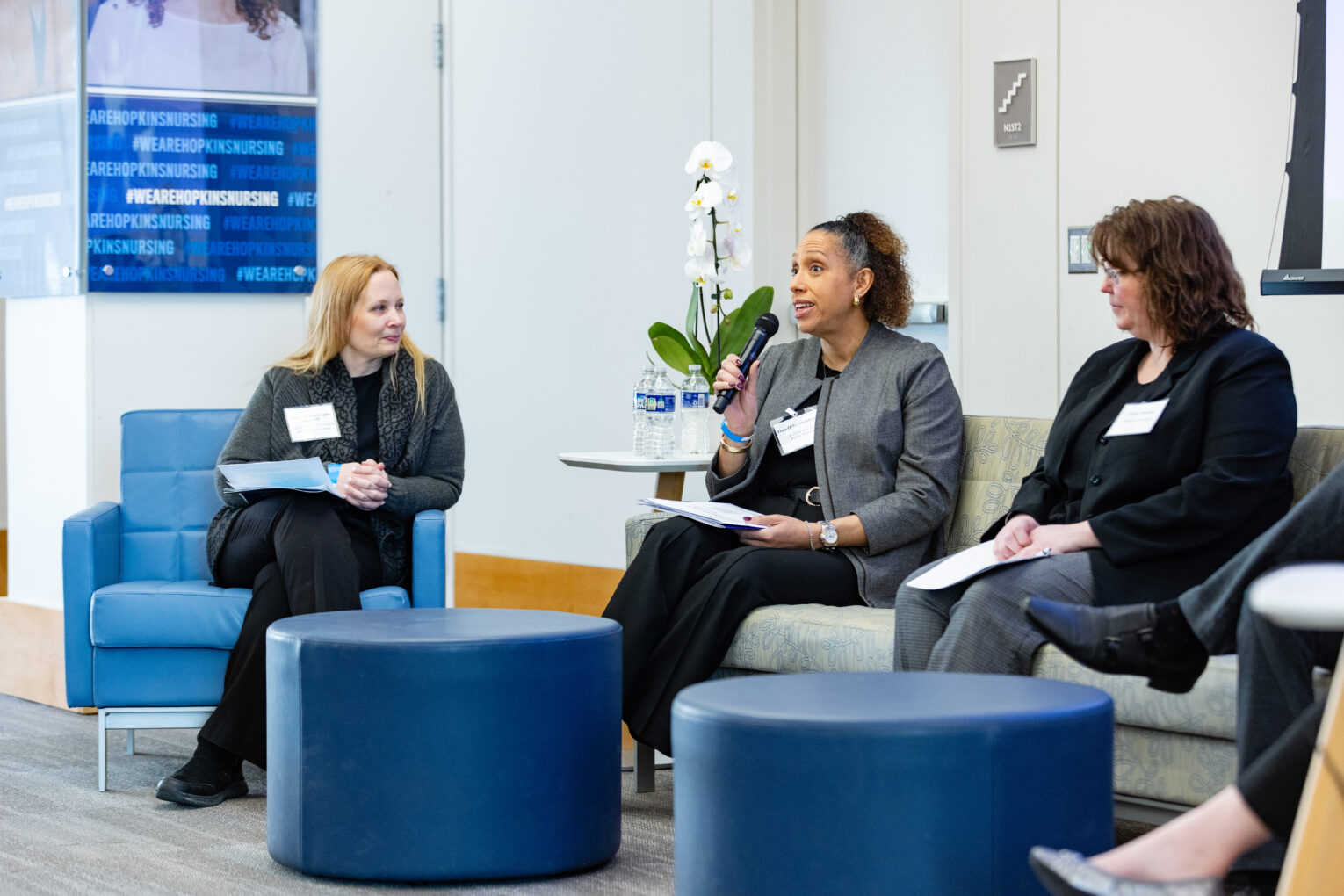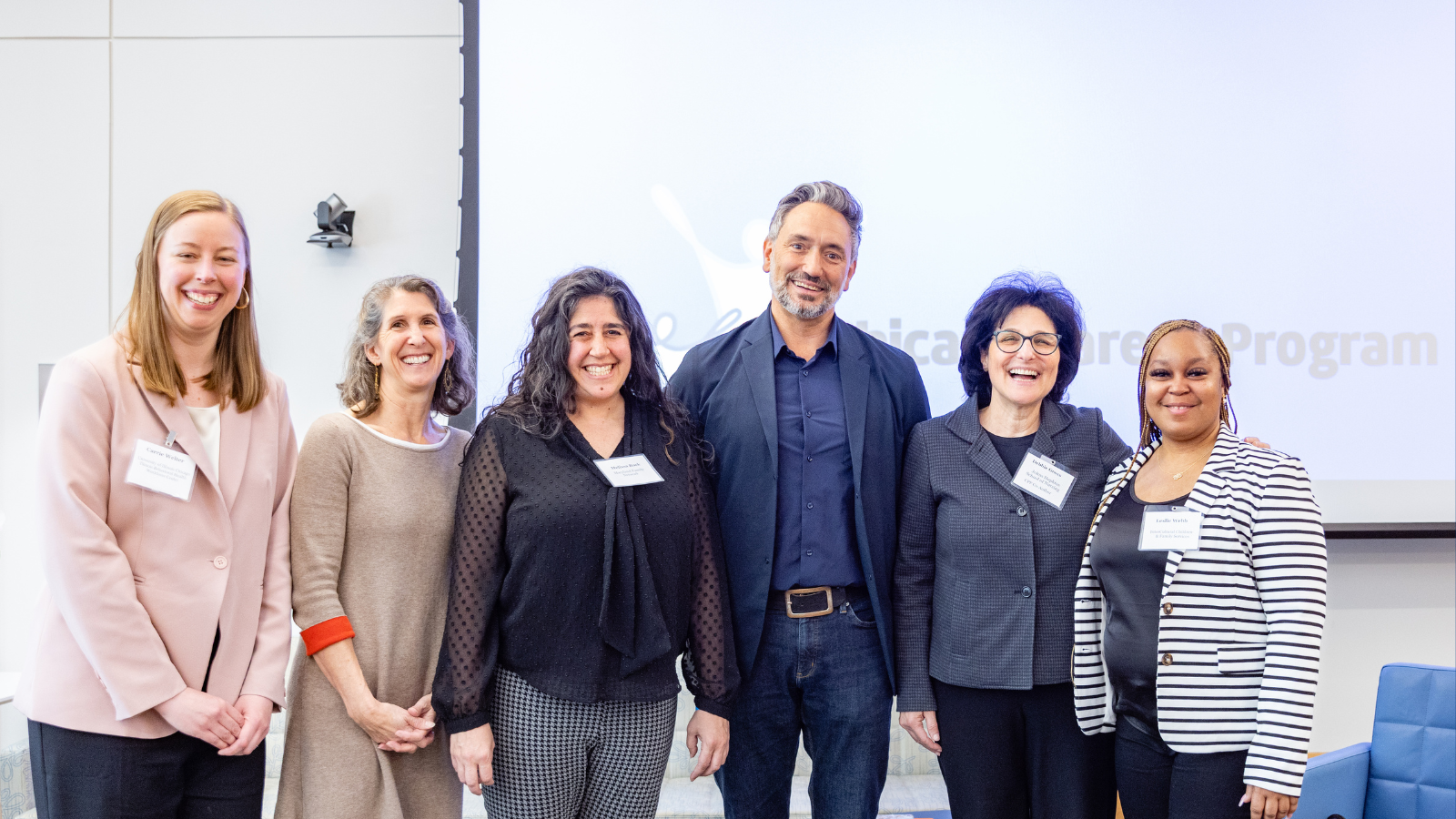By: Brian Fitzek
On March 21, 2025, more than 70 researchers, healthcare professionals, parents, advocates, and policymakers gathered for Chicago Parent Program Futures, a one-day conference exploring how an evidence-based parenting program—designed to support families in under-resourced communities—is expanding its reach and impact across the country.
The event spotlighted the Chicago Parent Program (CPP), a parenting skills intervention created by Dr. Debbie Gross, Leonard and Helen Stulman Endowed Chair in Mental Health & Psychiatric Nursing at the Johns Hopkins School of Nursing. Developed in 2002 during Gross’ tenure at Rush University College of Nursing in Chicago, CPP was created in partnership with colleagues and a diverse group of parents to address the parenting needs of families in under-resourced communities. From its beginnings as an NIH-funded project, CPP has grown into a nationally-recognized program that has reached more than 15,000 families in both English and Spanish. It is now implemented in schools, child mental health clinics, Head Start programs, primary care, and community-based organizations nationwide.
Gross opened the event by reflecting on the evolution of parenting support in mental health care. Parents, once viewed as the primary source of their children’s mental health problems and marginalized from the treatment process, are in fact key partners in supporting their children’s mental health. This core belief—that parents are powerful agents of change—has shaped every aspect of CPP. Its curriculum is based on research in child development and behavior management but was designed with input from parents to ensure its strategies are realistic, culturally responsive, and relevant to their everyday challenges. Speaking after Gross, Arnie Richman, President of The Richman Foundation, underscored the Foundation’s commitment to early childhood initiatives. The Foundation’s support has been instrumental in enabling CPP to expand its reach and deepen its impact in under-resourced communities.
Strengthening Families and Communities
The morning panel, Building Stronger Communities through CPP, brought together leaders from educational and behavioral health organizations who have implemented CPP across diverse settings. Representatives from schools, child mental health agencies, and Head Start discussed how CPP has helped strengthen families and build more equitable systems of care.
One consistent message: centering the voices and leadership of parents is essential. In many agencies, individuals from the community with deep lived experience are trained to facilitate CPP groups, serving as both educators and cultural brokers. This approach has strengthened community trust and, in some cases, improved program attendance. .Flexibility has been a cornerstone of the Chicago Parent Program’s (CPP) expansion and success. Designed to be delivered in person, online, or through hybrid formats, CPP adapts to the diverse needs of families and the operational capacities of implementing agencies. This adaptability has facilitated broader adoption across various settings, enabling agencies to integrate the program into their existing structures effectively. Such widespread implementation underscores CPP’s ability to meet families where they are, fostering strong community engagement and sustained participation..
Planning for Scale and Sustainability
The afternoon panel, Ensuring Long-Term Impact through Policy and Collaboration, shifted focus to sustainability at the systems level. The panel featured leaders from state agencies and nonprofit organizations who are working to embed CPP into statewide early childhood and behavioral health frameworks.
Panelists from Washington State, Illinois, and Maryland described how cross-sector partnerships and strategic planning have helped scale CPP. In Washington, the program has shown promise in preventing out-of-home placements for children by providing culturally responsive parenting support to Black and African-American families. Illinois is investing in grassroots organizations to implement CPP, though ongoing funding remains a challenge. Speakers agreed on several needs moving forward: flexible funding models, long-term policy support, and integration of CPP into broader health and social service systems.
Looking Ahead
In her closing remarks, Gross emphasized the shared commitment among attendees to build on CPP’s momentum. Ideas for the program’s future include seeking corporate partnerships, expanding its use in adolescent parenting programs, and exploring international collaborations. CPP’s vision for the next 25 years is rooted in the same principles that shaped its beginning: accessibility, community partnership, and the belief that when we support parents, we build stronger families and communities—and stronger futures—for all children.
Watch the panels from the Chicago Parent Program Futures


